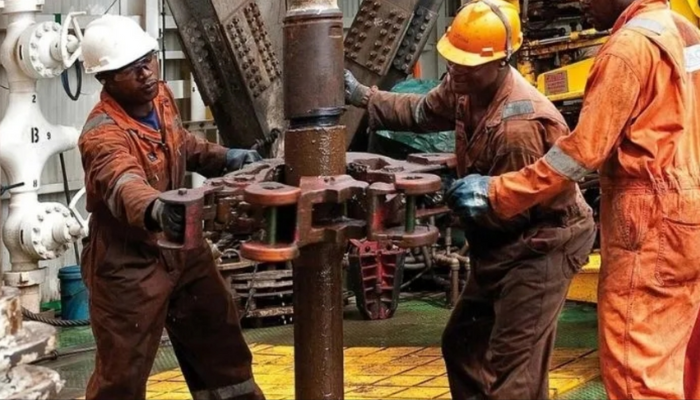The Nigerian Association of Petroleum Explorationists (NAPE) has cautioned that Nigeria’s crude oil production may experience a steep decline in the coming years if the country fails to make significant new oil and gas discoveries. The association warned that the nation’s reliance on aging oil fields and inadequate exploration investments poses a major threat to its long-term energy security and economic stability.
Speaking ahead of its upcoming annual international conference, NAPE President, Abiodun Ogunjobi, said the rate of oil exploration and discovery in Nigeria has dropped drastically over the last decade, creating a dangerous gap between production and reserve replacement. He said the association’s data indicates that unless urgent measures are taken, Nigeria could lose up to 30 percent of its current output by 2030.

“Nigeria has not made any major oil discovery in recent years, and the reserve replacement ratio has fallen below sustainable levels,” Ogunjobi said. “While we continue to extract from existing fields, we are not adding sufficient new reserves to support future production. This situation puts the country’s energy future at risk.”
The NAPE boss explained that several oil wells in the Niger Delta region are producing far below their optimal capacity due to aging infrastructure and insufficient reinvestment in exploration and appraisal activities. He added that most multinational oil companies have shifted focus to deepwater and gas developments, while indigenous operators face capital constraints that limit their ability to explore new frontier basins.
According to him, Nigeria’s crude reserves currently stand at around 37 billion barrels, but without sustained exploration, the volume could begin to decline significantly within the next decade. “If we don’t deliberately invest in exploration, these reserves will be depleted faster than we anticipate. The global energy transition has made capital for fossil fuel projects harder to access, but Nigeria cannot afford to slow down on exploration. We must continue to find oil and gas to sustain revenue and energy security,” he stated.
Ogunjobi stressed that countries like Angola, Namibia, and Guyana have recently discovered substantial reserves, attracting new investments that could position them as global energy players. He said Nigeria risks losing its competitive edge in Africa’s petroleum market if it continues to depend on old fields without expanding exploration to frontier basins such as the Chad, Gongola, Anambra, and Dahomey regions.
He called for the federal government to create a more enabling environment for exploration through fiscal incentives, improved regulatory clarity, and better security around oil assets. “The Petroleum Industry Act (PIA) provides a foundation for reform, but implementation has been slow. We must make Nigeria attractive again to investors, both local and international. Without investment in exploration, our production will naturally decline, and government revenue will suffer,” he added.
The NAPE president also noted that the persistent insecurity in oil-producing areas has discouraged fresh exploration activities. He said issues such as pipeline vandalism, crude theft, and community unrest continue to erode investor confidence and increase operational risks. “Investors need assurance that their assets are safe. When security is weak, exploration budgets shrink, and companies begin to look elsewhere,” he warned.
Ogunjobi urged the government to prioritise frontier basin development, saying that the Nigerian National Petroleum Company Limited (NNPCL) and the Nigerian Upstream Petroleum Regulatory Commission (NUPRC) must collaborate with private operators to accelerate seismic surveys and exploratory drilling in untapped regions.
He said, “We commend the NNPCL for recent efforts in drilling campaigns in the North, but there is a need for a coordinated national exploration strategy. We must invest in data acquisition, technology, and skills development to enhance the success rate of exploration activities.”
Energy experts who spoke on the issue supported NAPE’s position, emphasising that Nigeria’s oil output could fall below 1.2 million barrels per day if exploration remains stagnant. Dr. Bala Zakka, an oil and gas analyst, said the warning from NAPE reflects a harsh reality that has been overlooked for years. “Nigeria is living on old discoveries. Most of the major fields we rely on today were discovered decades ago, and production is naturally declining. Without aggressive exploration, our production capacity will nosedive,” he explained.
He added that while Nigeria is making progress in gas exploration and monetisation, the country still depends heavily on crude oil exports for foreign exchange earnings. “We need to balance our transition goals with economic realities. The world is moving towards clean energy, but for now, oil remains a major revenue source. Neglecting exploration will only deepen our fiscal challenges,” Zakka said.
Similarly, petroleum geologist Dr. Victoria Ehi emphasised that Nigeria must modernise its exploration techniques to align with global best practices. “We need to adopt advanced subsurface imaging, data analytics, and digital technologies to improve exploration accuracy. The global exploration landscape is changing fast, and Nigeria must not be left behind,” she said.
The NAPE conference, themed “Repositioning Nigeria’s Energy Landscape for Sustainability,” is expected to bring together policymakers, industry leaders, and geoscientists to deliberate on strategies for reviving exploration activities and ensuring energy transition without jeopardising economic growth.
Participants are also expected to discuss how Nigeria can leverage its abundant gas reserves as a transitional fuel while sustaining exploration to prevent a sharp decline in oil output. According to NAPE, the conference will serve as a platform for developing a roadmap for reserve growth, investment attraction, and capacity building.
Ogunjobi concluded that Nigeria must act decisively to avoid a future where declining oil production undermines economic stability. “Our message is clear: without new discoveries, Nigeria’s oil output will fall, revenues will shrink, and our energy independence will be threatened. The time to act is now,” he said.
He reiterated NAPE’s commitment to supporting the government and industry stakeholders through research, advocacy, and technical expertise to ensure that exploration activities remain a priority in Nigeria’s oil and gas agenda.
Support InfoStride News' Credible Journalism: Only credible journalism can guarantee a fair, accountable and transparent society, including democracy and government. It involves a lot of efforts and money. We need your support. Click here to Donate
